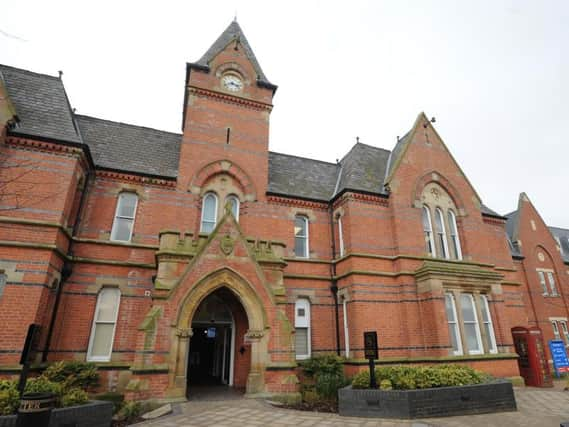Interpreters are very much in demand at our borough hospitals


Wrightington, Wigan And Leigh NHS Foundation Trust is using interpreters for more and more different languages to assist their patients.
Other news: Reshuffle plan protest held at same time as hospital meetingData obtained by the Observer under the Freedom Of Information Act shows interpreters were used 1,384 times in 2016-17, a large increase from 543 times in 2012-13.
Advertisement
Hide AdAdvertisement
Hide AdThe most popular language in 2012-13 was Polish and it remained at the top of the table in the most recent figures.
But the number of different languages used has increased, with interpreters needed for 30 languages in 2016-17.
Also among the top languages requested were Kurdish, Arabic, Farsi and Mandarin.
Interpreters were also needed for Czech, Albanian, Portugese, Italian, Lingala, which is spoken in the Congo, Tigrinya (Eritrea/Ethiopia) and Tamil (India/Sri Lanka).
Advertisement
Hide AdAdvertisement
Hide AdDebbie Jones, inclusion and diversity services lead at the trust, said: “Wigan is the least ethnically diverse borough in the county, but migration has significantly changed in Wigan over the last few years.
“Even though we have a small ethnic minority, because of migration we have a lot of different ethnicities using the hospital.
“We have asylum seekers and refugees, migrants, gypsies and travellers, overseas students. Some of this ethnic population don’t stay for a long time.”
The data shows interpreters converse with patients either by telephone or face to face.
Advertisement
Hide AdAdvertisement
Hide AdMrs Jones said: “Telephone interpreters are available 24 hours a day, seven days a week. If a patients comes to A&E, we can phone straight away. We use Language Line.
“We have face-to-face interpreters as well. If we know a patient is coming, they may meet certain criteria for face-to-face interpreters.
“They provide so many different languages, it’s not really a problem. It’s only an issue if we have a rare language.”
The interpreters assist patients by translating what they are being told by medical staff so they understand it fully and ask any questions on their behalf.
Advertisement
Hide AdAdvertisement
Hide AdFace-to-face interpreters are always used for children and vulnerable adults, while they can also be arranged for planned appointments.
The data obtained by the Observer shows the trust is spending more money on interpreters, rising from £31,544 in 2012-13 to £45,658 in 2016-17.
Back in 2010-11 a total of £85,234 was spent and it dropped to £26,826 in 2013-14.
Information about the use of British Sign Language was also provided to the Observer.
Advertisement
Hide AdAdvertisement
Hide AdInterpreters were needed 60 times in 2012-13 and 80 times in 2016-17, with figures rising and falling over the years.
Mrs Jones said: “A&E is a problem. If we have a patient who comes in who is deaf, we can’t get a signer on the telephone. We book an interpreter but it can take six to seven hours for them to come.
“We are looking at web-based signers so we could have signed access for patients.
“We do engage with the local deaf community and know they don’t always like web-based services, so we would book face-to-face interpreters for outpatients.”